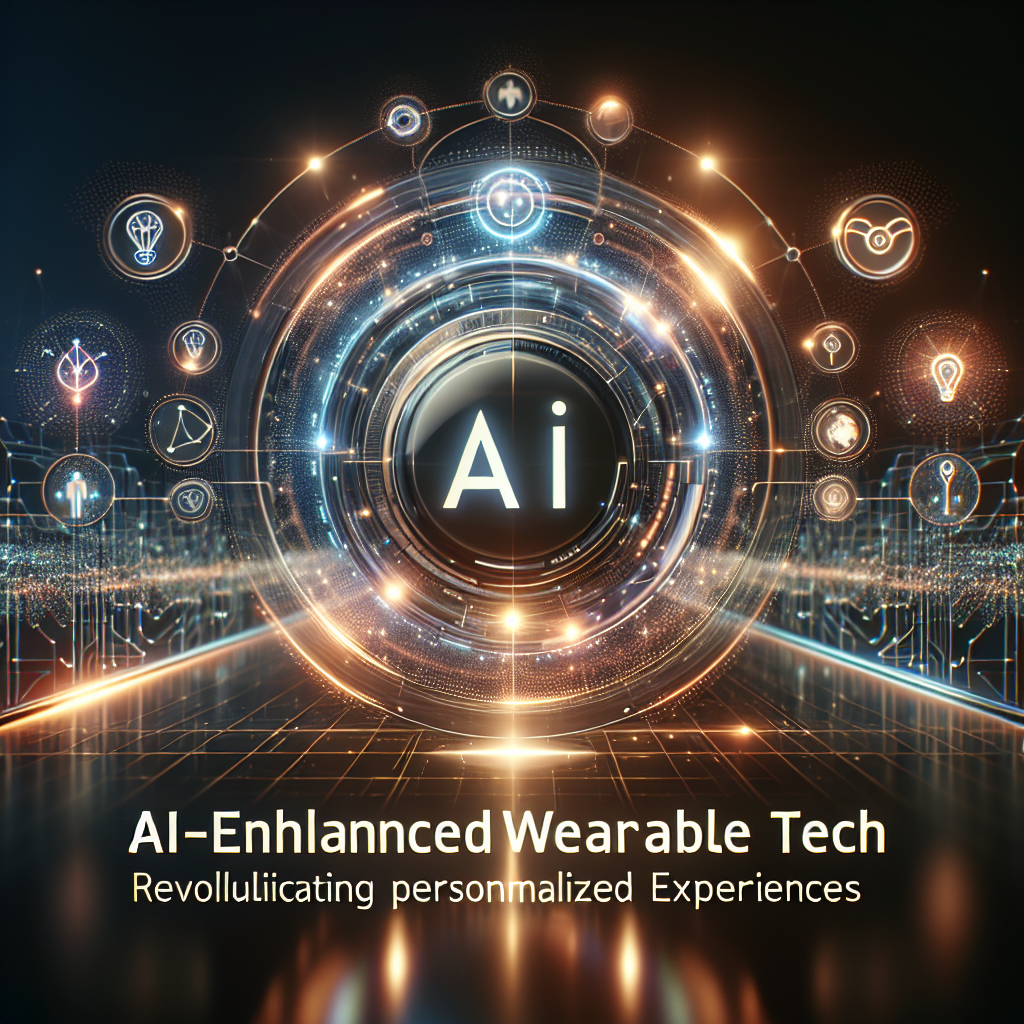Wearable Technology Meets AI: A New Frontier for Personalized Experiences
The fusion of wearable technology and artificial intelligence (AI) represents a significant shift in how we engage with our surroundings and monitor our health. With a growing demand for personalized solutions, the synergy between these two tech domains is driving innovations that enhance daily activities, simplify tasks, and improve personal health management.
The Growth of Wearable Technology
Wearable technology has significantly evolved since the debut of simple fitness trackers. Today, devices like smartwatches, fitness bands, and smart apparel offer a multitude of features, including heart rate monitoring, GPS navigation, and sleep analysis. These gadgets gather extensive data on activity levels, biometrics, and environmental conditions. Traditionally, such data yielded general insights, but the incorporation of AI is reshaping how users benefit from this information.
The Role of AI in Advancing Wearable Tech
AI enhances wearable capabilities in several key areas:
-
Data Analysis and Customization:
AI algorithms interpret data from wearables to provide customized insights. For example, a fitness tracker can track your steps and offer personalized workout recommendations based on your activities and recovery, helping you achieve your fitness objectives more efficiently. -
Proactive Health Monitoring:
Wearables embedded with AI can foresee health issues before they occur. By analyzing trends in metrics such as heart rate, sleep quality, and stress levels, these devices can notify users about potential health risks, encouraging proactive medical consultations. This predictive function can be transformative for managing conditions like diabetes or heart disease. -
Voice Recognition and Smart Assistance:
The integration of AI-powered voice recognition improves interaction with wearables. Picture asking your smartwatch about health statistics, reminders, or meal suggestions tailored to your dietary needs and fitness goals. This hands-free experience offers both convenience and a more intuitive way for users to engage with technology. - Adaptive Learning:
AI systems in wearable tech adapt alongside users. Over time, they learn from individual habits and preferences, continually refining recommendations and insights. For instance, if a user follows a particular workout routine, the AI can suggest personalized variations or alternatives to keep the experience dynamic and interesting.
Impacting Industries Beyond Fitness
The benefits of AI-enhanced wearable technology spread across various sectors:
-
Healthcare: AI-driven medical wearables help monitor patient data in real-time, allowing healthcare providers to make quick, informed decisions. Remote monitoring can facilitate rapid interventions in urgent situations, fundamentally changing patient care.
-
Sports and Performance: Athletes leverage wearables with AI for performance analytics. Coaches receive in-depth reports on players’ physical conditions, fatigue, and optimal recovery times, leading to more effective training plans.
- Fashion and Lifestyle: Smart apparel featuring sensors and AI can monitor aspects like posture and muscle activity, merging aesthetics with functionality. Brands are increasingly designing stylish wearables that not only enhance appearance but also provide actionable insights about the wearer’s daily behaviors.
Challenges and Considerations
Despite the opportunities, integrating AI into wearable technology presents challenges. Data privacy and security are top concerns. Users must feel confident that their personal information is handled securely to prevent data breaches that could expose sensitive health details.
Additionally, technological barriers might limit accessibility for some consumers. Ensuring that both advanced wearables and AI systems are easy to obtain and use is essential for widespread adoption.
The Horizon for Wearable Tech and AI
Looking forward, the future of AI-driven wearable technology is promising. Innovations like augmented reality (AR) glasses and smart textiles are on the horizon, offering even more immersive and tailored experiences. The potential for advancements in health tracking, environmental engagement, and everyday convenience continues to grow.
Ultimately, as wearable technology and AI evolve together, we are entering a new era defined by hyper-personalized experiences. With each advancement, our lives become increasingly interconnected, allowing us to make more informed decisions and enhance our overall well-being. This synergy between convenience, health, and technology is set to transform not just individual lifestyles but also the broader societal landscape.

